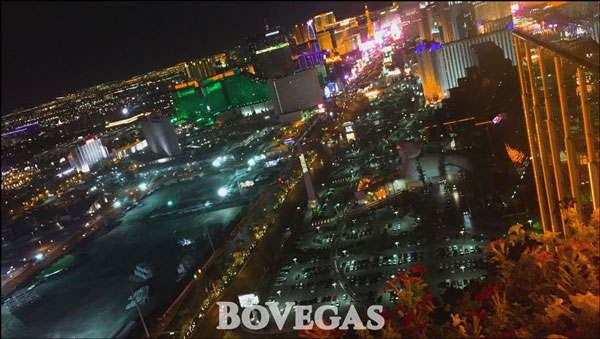



A pivotal gambling hub and a major site of lavish entertainment, the city of Las Vegas is one of the few grandiloquent locales that spring to mind in terms of money wagering amid luxury and risks. Las Vegas has established itself as a worldwide symbol of biggest casino wins and “wicked fun,” and is credited with the notorious emergence of the gambling industry. Indeed, if it hadn’t been for the first Las Vegas casino to open in the early 1930s, today’s ever-evolving gaming enterprise might never have positioned itself as a top-notch entertainment niche.
Gambling in Las Vegas is underlined by a complex mechanism of changing rules and laws. The thing is that Las Vegas gambling, encompassed by a number of controversial ideas and widespread criticism, has undergone a series of governmental and social regulations that confined its area of dissemination. And, considering Las Vegas’s high-end status within the gaming industry, it stays abreast of its current situation regarding legislation and social elements, all of which are critical and important for the up-to-date gambler. So, let’s take a look at the intricate system of the gambling industry of Las Vegas.
Before elaborating on how Vegas gambling is doing nowadays, we’d like to introduce you to a brief overview of its development, a small outline of Las Vegas gambling history. Surprisingly enough, it wasn’t until the onset of the 20th century that Sin City appeared on U.S. maps. Las Vegas was founded as late as 1901. And it didn’t take long for the first money-wagering game to be played in Sin City, only to be outlawed shortly thereafter in 1910. Then, in 1931, gambling was legalized again, which sparked an ambiguous reaction on the part of the city’s residents – some gladly broke bad by placing big bets, while others resented the authorities for legitimizing the enterprise. At the end of the day, gambling bosses did manage to keep a tight grip, and it took barely a few months for the first Vegas casino, called Pair-o-Dice Club, to be established on the legendary Las Vegas Strip in 1931.

As we mentioned before, it was 1931 when Nevada authorities legalized gambling, following an elongated hiatus in Vegas gaming activity. Meanwhile, the government began enforcing strict regulations on the gambling industry all over the country, leaving Nevada intact, thereby letting Nevada overstep the other states in their gaming development. However, state officials did provide a regulatory mechanism for the gaming enterprise in Las Vegas – in 1959, they founded the Nevada Gaming Control Board, which was aimed at regulating the gaming frenzy that had been expanding wildly across the city’s entertainment sector.
From then on, the industry has been imposed an immense series of regulations and constraints that were put through numerous alterations until Nevada residents were introduced to the ultimate law & tax system in Vegas.
To begin with, the Nevada Gaming Control Board made only certain forms of gambling legitimate. They are as follows: casino games, live poker, online poker, sports betting, and bingo games. Bizarrely enough, online casino gambling, as well as lottery betting, are banned in Nevada. As for Las Vegas gambling age, one must be at least 21 to be eligible to enter a casino, and it’s recommended for patrons to carry along an identification document with a photo.
Today, tax collections in Nevada comprise about 50% of the state’s total revenue. Normally, the amount that’s withheld by the U.S. Internal Revenue Service ranges between 25% and 30%. As a rule, winnings are reported to the IRS if the amount that players pay exceeds $600. This particular rule doesn’t apply to certain games, such as Bingo, Keno, and slots. When it comes to these games, casinos inform the IRS only if the winning is $1,200 or more. As for Keno, the minimum sum has to be at least $1,500. Once this amount is exceeded, casinos choose whether to withhold taxes or not, providing players with IRS form W-25.
The taxation rules applied to table games are different. The thing is, according to table game rules, the house officials have no idea how much you won. Consequently, your taxable gains remain unknown. In such instances, the winnings are neither withheld nor reported to the IRS.
It’s easy to argue the escalating hype around the gambling industry in Vegas today: there’s a growing expansion of high-end casinos and an impressively vast number of devoted patrons, and many of them come to the Strip from far beyond the state, and gambling brings thrilling revenues to the state treasury. For all that, the industry is subject to colossal pressure from local political and social entities who administer the strict limitations as to its current and further development. Nevertheless, the outlook for the gambling industry in Las Vegas remains positive. It’s predicted that the enterprise will keep moving forward in a dynamic manner with its sustainability and gross gaming revenue. The experts also forecast that the obstacles impeding development in Las Vegas will indeed be present in the nearest future, but its global status and influence far outstrip these limitations.

The definition of gambling has always been associated with luck and probability, whereas the integral skill-based part of the industry has been disregarded and dismissed as nonsense by most of those who are sadly unfamiliar with gambling. However, even some seasoned players scoff at the idea too! Even so, there have recently been some public […]
It won’t be a surprise if we say that bookmakers love accepting bets; and they also try and grab any advantage they can, however meager, whenever there’s any chance at all for a gambler to place a bet. “If you think of it, you can wager on it!” That’s the golden rule of all the […]
The concept of online casino bonus hunting appeared almost simultaneously with bonuses emerging at online gambling establishments. Several years ago, some enterprising players were able to make fortunes with the bonuses offered by online casinos. Today, the hunting phenomenon of online casino promotion bonus became remarkably weaker, and it is much more difficult to meet […]
It is quite difficult to explain why people are always interested in “record-breaking events” or just “big stories” about anything. And this is exactly the case with roulette. You could find many fans of the “biggest roulette wins” tales, even among those who have never entered a casino floor to make a wager. And, perhaps, […]
If you love gambling and have been to a land-based casino at least once, you may have thought about becoming a dealer. Playing the same game but from the opposite side, while communicating with other players, sounds like a dream job, right? A dealer is a straightforward job, and you will be the heart and […]
On Monday September 14, MGM announced that it plans to open its first smoke-free casino at the end of September, when Park MGM will finally reopen its venues to players and tourists. The resort comprises around 2,990 rooms and various restaurants, and it’s set to be reopened on September 30. The venue has been closed […]
Online gambling has undoubtedly taken a place of true supremacy over the casino industry during the pandemic. And the reason for that is quite clear: online casinos are more accessible, and you can always count on some encouragement from the casino administration to help you boost your game. However, this digital revolution has only been […]
The large selection of online gambling sites out there can make players somewhat puzzled, and give them a feeling of uncertainty about making the right choice of casino. Each online gambling venue offers its own conditions, games, and various bonuses, of course; but the most important thing is the reliability of the casino and the […]